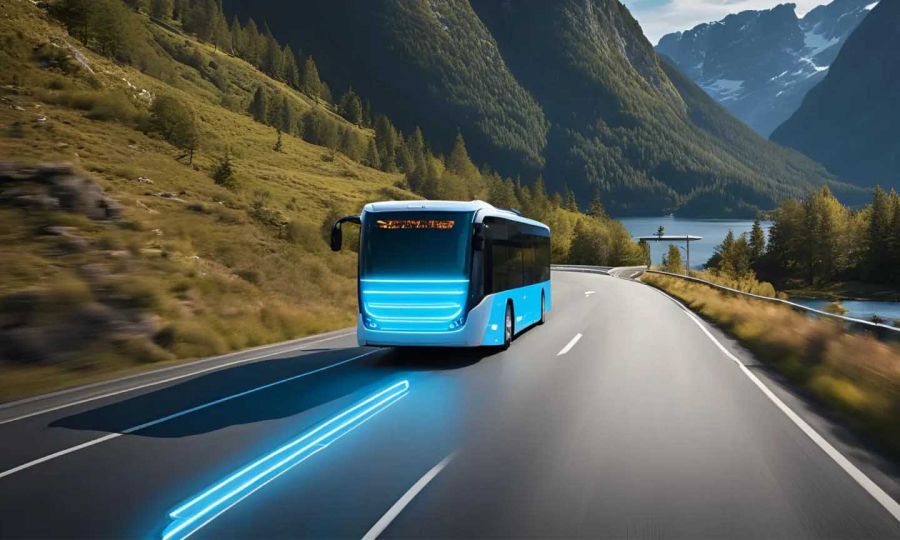Norway, a leader in sustainable transportation, has unveiled the world’s first wireless charging road. This 100-meter stretch in Trondheim uses Electreon Wireless technology to charge electric vehicles as they drive. This innovative project marks a new era in EV technology, promising to revolutionize transportation, energy efficiency, and environmental sustainability.
Norway’s EV Leadership
Norway has been a pioneer in electric vehicle adoption. In 2023, over 80% of new car sales were electric, making it a global leader in this field. This remarkable shift was driven by government incentives like tax breaks, toll exemptions, and free public charging. Norway’s commitment to a zero-emission transport sector by 2025 has also played a crucial role.


Addressing Range Anxiety
As the number of electric vehicles grows, so does the need for efficient charging infrastructure. While Norway has a robust network of charging stations, range anxiety remains a concern for many potential EV buyers. Wireless charging roads could be a game-changer, offering a convenient and seamless charging experience.
Read More: Tesla Unveils $30K Cybercab and Robovan
A Technological Breakthrough: Wireless Charging Roads
The wireless charging road in Trondheim represents a significant technological advancement. Developed by Electron Wireless, this innovative system uses inductive charging to transfer energy from the road to electric vehicles as they drive.
The road is embedded with coils that generate a magnetic field. When electric vehicles equipped with receiving coils pass over these coils, they capture the magnetic field and convert it into electricity, charging the vehicle’s battery. This dynamic charging system eliminates the need for vehicles to stop charging, making long-distance electric travel more convenient.
Highly efficient and with minimal energy loss, this technology can charge vehicles at a rate comparable to or even exceeding traditional charging stations. This breakthrough could revolutionize the way we think about electric vehicle travel.
Environmental and Economic Benefits
Wireless charging roads have significant environmental and economic benefits. By making electric vehicles more convenient, they encourage wider adoption, reducing carbon emissions. This aligns with Norway’s goal of reducing greenhouse gas emissions.
While the initial investment is substantial, the long-term benefits are promising. Reduced oil dependency, lower EV maintenance costs, and the potential for a new wireless charging industry could lead to significant economic gains. The job creation associated with installing and maintaining these roads can also boost local economies.
Challenges and Future Prospects
While wireless charging roads offer exciting potential, several challenges must be addressed. Cost, vehicle retrofitting, technical considerations like efficiency and safety, and infrastructure durability are key concerns.
Despite these challenges, the potential benefits are significant. As the technology matures and costs decrease, wider adoption is likely. Norway, with its commitment to sustainability and innovation, is well-positioned to lead the way in this field.
Conclusion
Norway’s pioneering wireless charging road marks a significant step towards sustainable transportation. This innovation could revolutionize electric vehicle usage, eliminating range anxiety. As the world addresses climate change, such advancements are crucial for a greener future. Norway’s leadership in this field sets a positive example for other countries, demonstrating the potential for efficient and environmentally friendly transportation.
FAQs
Norway’s wireless charging road is the first of its kind in the world, marking a significant milestone in electric vehicle infrastructure. It showcases the potential of wireless charging technology to revolutionize electric vehicle power.
Wireless charging uses inductive technology to transfer energy from the road to the vehicle. The road’s embedded coils generate a magnetic field that the vehicle’s receiving coils capture and convert into electrical energy.




